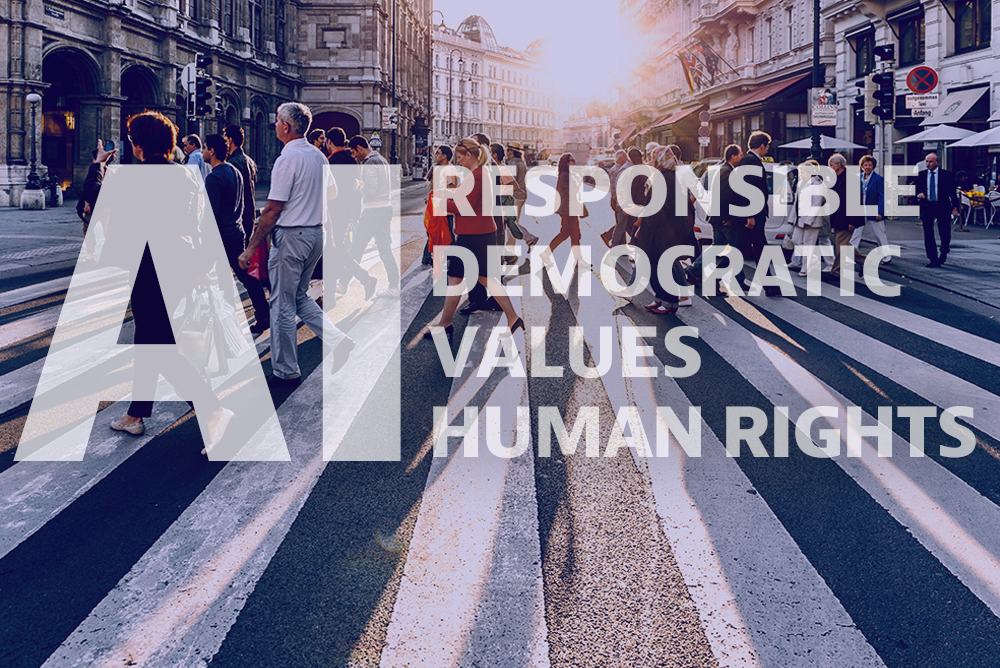The Global Partnership on AI takes off – at the OECD
Exciting things are happening in AI and at the OECD. Today, we had a virtual kick-off meeting of the Global Partnership on AI (GPAI), an international initiative to promote responsible AI use that respects human rights and democratic values. The Partnership was conceived by Canada and France during their G7 presidencies and at its launch counted 13 other founding members: Australia, the European Union, Germany, India, Italy, Japan, Korea, Mexico, New Zealand, Singapore, Slovenia, the United Kingdom and the United States.With its Secretariat hosted at the OECD, the GPAI will bring together experts from industry, government, civil society and academia, to advance cutting-edge research and pilot projects on AI priorities.
The OECD is at the forefront of AI policy development and analysis having engaged member countries and the multistakeholder community on this, and many other, important technological developments for many years. This early engagement laid the foundation for the development of the first intergovernmental standard on AI at the OECD. This standard – known as the OECD AI Principles – counts all 37 OECD countries and seven non-Member partners among its adherents, and has also formed the basis of G20 AI Principles. This is the OECD at its best. In much the same way that the 1980 OECD Privacy Guidelines shaped global privacy law and policy the past forty years, we believe the AI Principles will have a similar impact in the next forty.

Building on the AI Principles, the OECD recognised the need to bring together a variety of data to enhance policmakers’ understanding of trends and developments, support the implementation of the Principles, and share approaches to AI public policy undertaken around the world. This led us to develop a cutting edge platform called the OECD AI Policy Observatory (OECD.AI). And in furtherance of our deep commitment to multistakeholder collaboration and the recognition that technology policy must be informed by experts across many disciplines, the OECD convened the best and the brightest minds on AI policy in the OECD Network of Experts on AI (ONE AI).
With this strong foundation, hosting the GPAI Secretariat is a natural next step to collaborate and enhance the impact of both the OECD and GPAI to advance our shared objective – the responsible development and use of AI. Importantly, this arrangement will foster synergies between the OECD-led international policy development and the GPAI’s technical discourse on AI. This link is critical: GPAI’s applied co-operation projects, pilots and experiments will strengthen the basis on which the OECD’s policy analysis is built. Similarly, OECD work, including that deriving from the AI Policy Observatory and ONE AI will inform GPAI’s discussions and analysis. And, since in joining GPAI, countries commit to responsible AI and the shared values as reflected in the OECD AI Principles, the initiative will extend the reach and impact of the Principles, beyond current Adherents.
How is the GPAI going to work?
GPAI has a Council and a Steering Committee, supported by a Secretariat hosted by the OECD, and two Centres of Expertise: one in Montréal (the International Centre of Expertise in Montréal for the Advancement of Artificial Intelligence) and one in Paris (at the French National Institute for Research in Digital Science and Technology or INRIA). These centres will facilitate GPAI’s four working groups and their research and practical projects, across various sectors and disciplines. The working groups, some involving ONE AI members, initially focus on four themes:
- Responsible AI (Montréal)
- Innovation and Commercialization (Paris)
- Data Governance (Montréal)
- The Future of Work (Paris)
The first annual GPAI Multi-stakeholder Experts Group Plenary will be hosted by Canada in December 2020.
What’s next on the agenda?
Amongst its activities, an urgent short-term goal for GPAI experts will be to investigate how we can leverage AI for a better response and recovery from COVID-19. The OECD has already identified areas where AI technologies and tools can assist COVID-19 responses and key recommendations for governments and stakeholders. In this, and many other areas, there is great scope for cross-fertilisation between OECD and GPAI as we work towards trustworthy AI.

Keep following our blog for updates as the GPAI initiative moves forward and for more information on other OECD activities on AI.

































